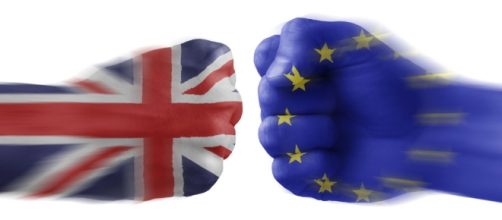Given all of the political flailing of arms and rhetorical sniping that has been going on, this has prevented many from seeing the bigger economic picture in terms of Brexit. The anticipated costs of Brexit seem to be increasing as more is known about Britain's plans and intentions on that score - four times the original estimate.
professor john van Reenen made these assertions from research he had been taking out over the last few years in a separate report. This will largely be down to the increasing costs of doing business with Europe. American economist, Jeffrey Sachs sees the reaction of the rest of Europe as a key to determining the impact of an exit from it - whether they punish Britain for Brexit, or as is mooted with countries like the Netherlands, possibly, they want to leave also.
It all depends on the type of Brexit
The much talked about departure of Britain from the European Union could, in some scenarios result in output losses of up to 9.5%. Professor Van Reenen in a "Bloomberg Surveillance" interview, qualified his findings by stating that it much depends on the type of Brexit. A "soft Brexit" akin to the position Norway adopted having close ties to Europe, would not be anywhere near as bad as a hard Brexit, often referred to as a "clean break".
Professor Van Reenen intimates that the roots of rising populist anger have been brewing since the global financial crisis of 2007/2008, whereby the average British workers' wages reduced by around 8% in the six years after it.
This could be seen as a reason why recently growth in the 4th quarter in Britain has been around 0.6%, as wages have began to recover in the last few years. Therefore, having little to do with Brexit. CNBC's Karen Gilchrist, quantified the costs more universally, putting a tag of making every UK citizen $4,000 worse off.
Professor John Van Reenen's own Brexit
Pro-Brexiteers are likely to attack the source of the above findings as much as the detail of them, as Professor John Van Reenen, a pro-European Union supporter, recently moved to the USA from Britain. He says that his leaving the UK was not down to Brexit, but admitted it was "made easier" by it. These findings will not make British Prime Minister Theresa May sleep any easier, even though she has secured the passing of the Brexit bill through parliament, recently.
Her next moves will be very closely monitored.
Ironically, Nigel Farage could be one of the pro-Brexiteers to welcome Professor John Van Reenen's findings given that the increasing costs occurred in Brexit, if they do materialise, will be another reason that the pledge to spend £350 million of European Union cash on the NHS after Brexit, didn't go through.

